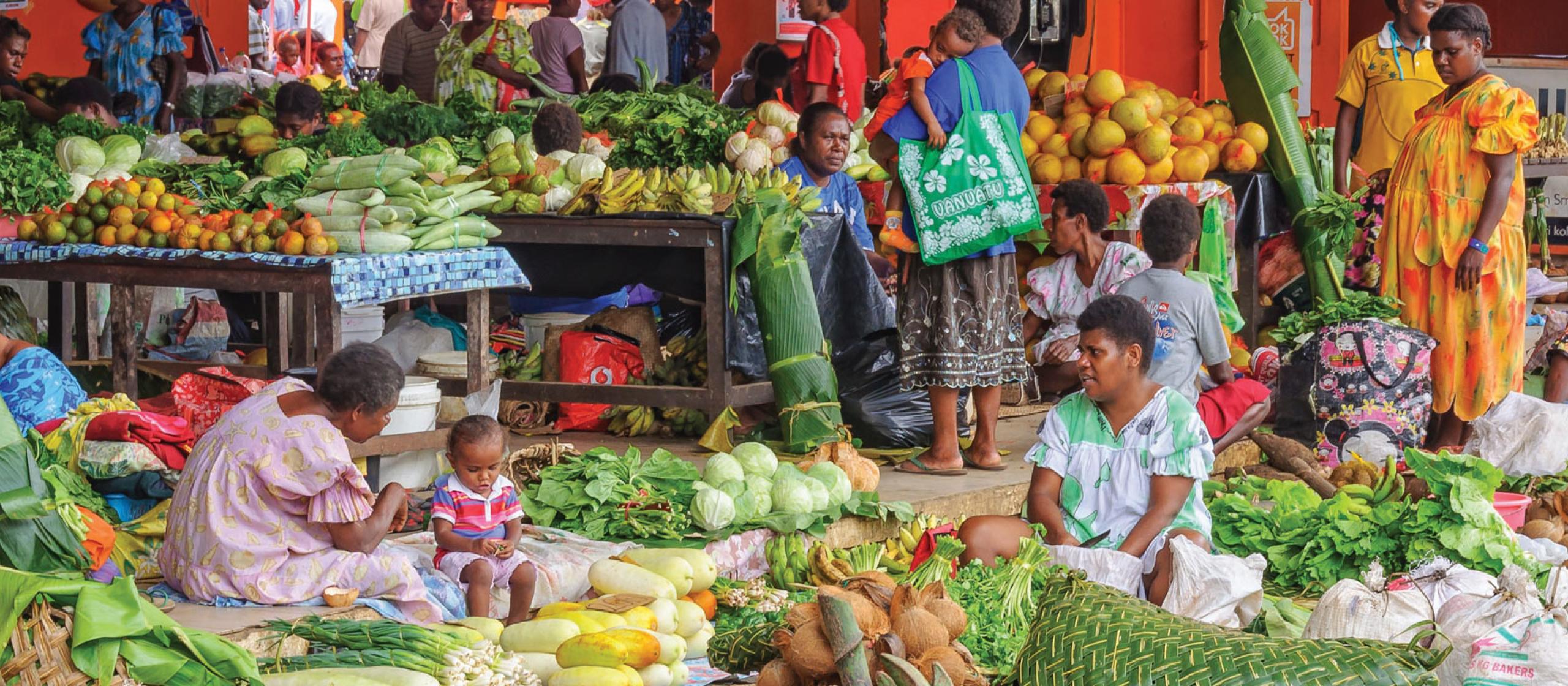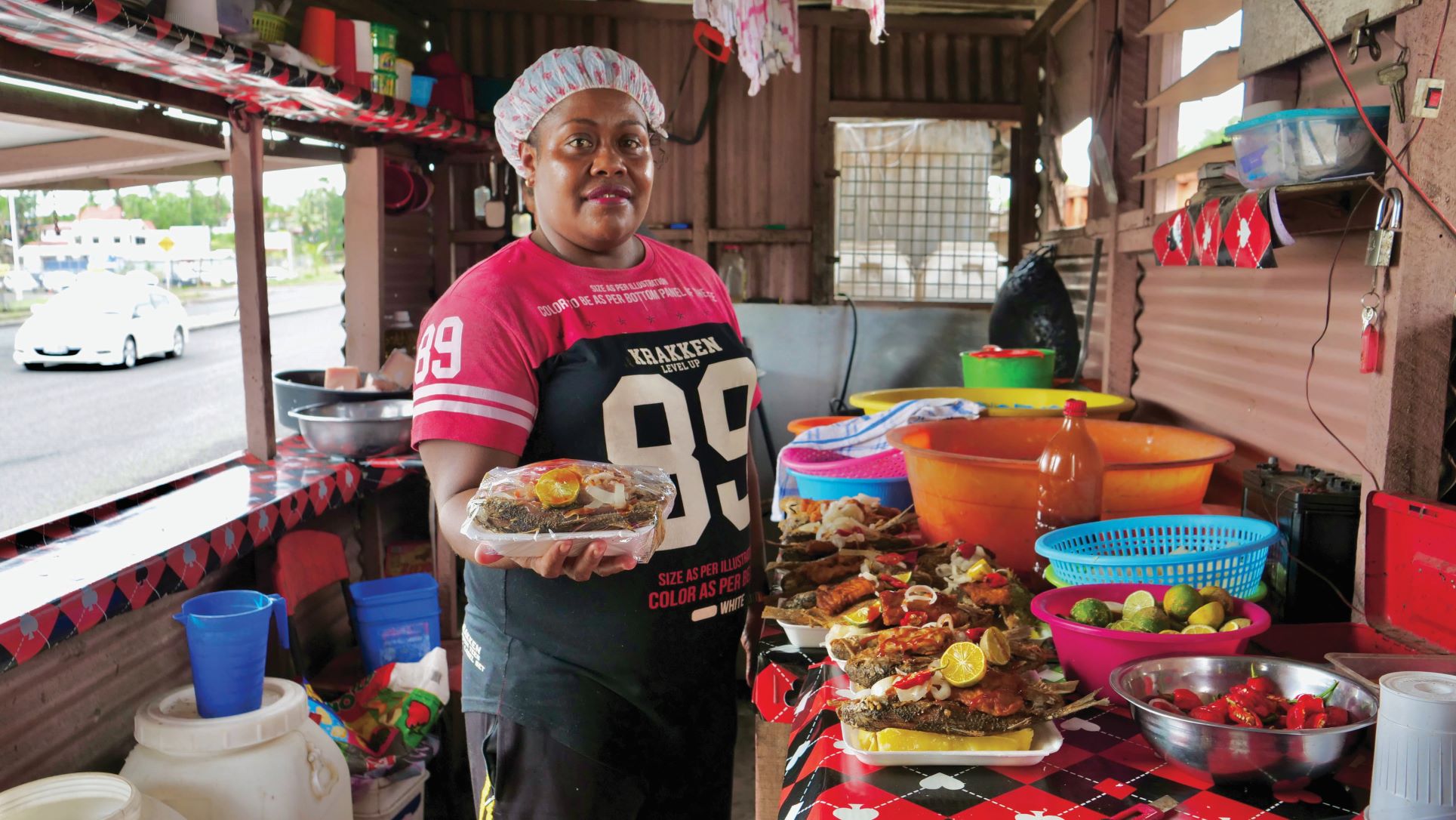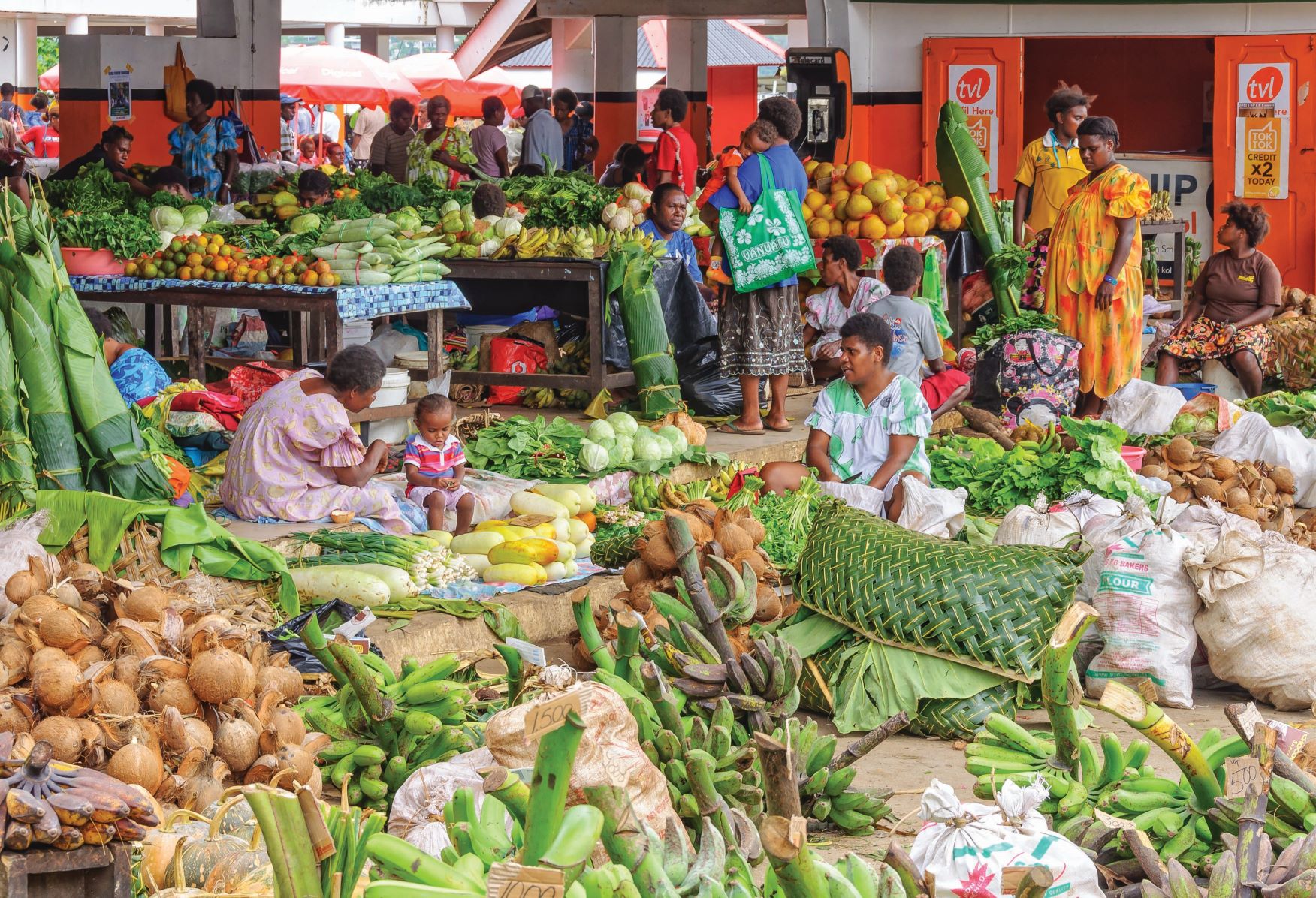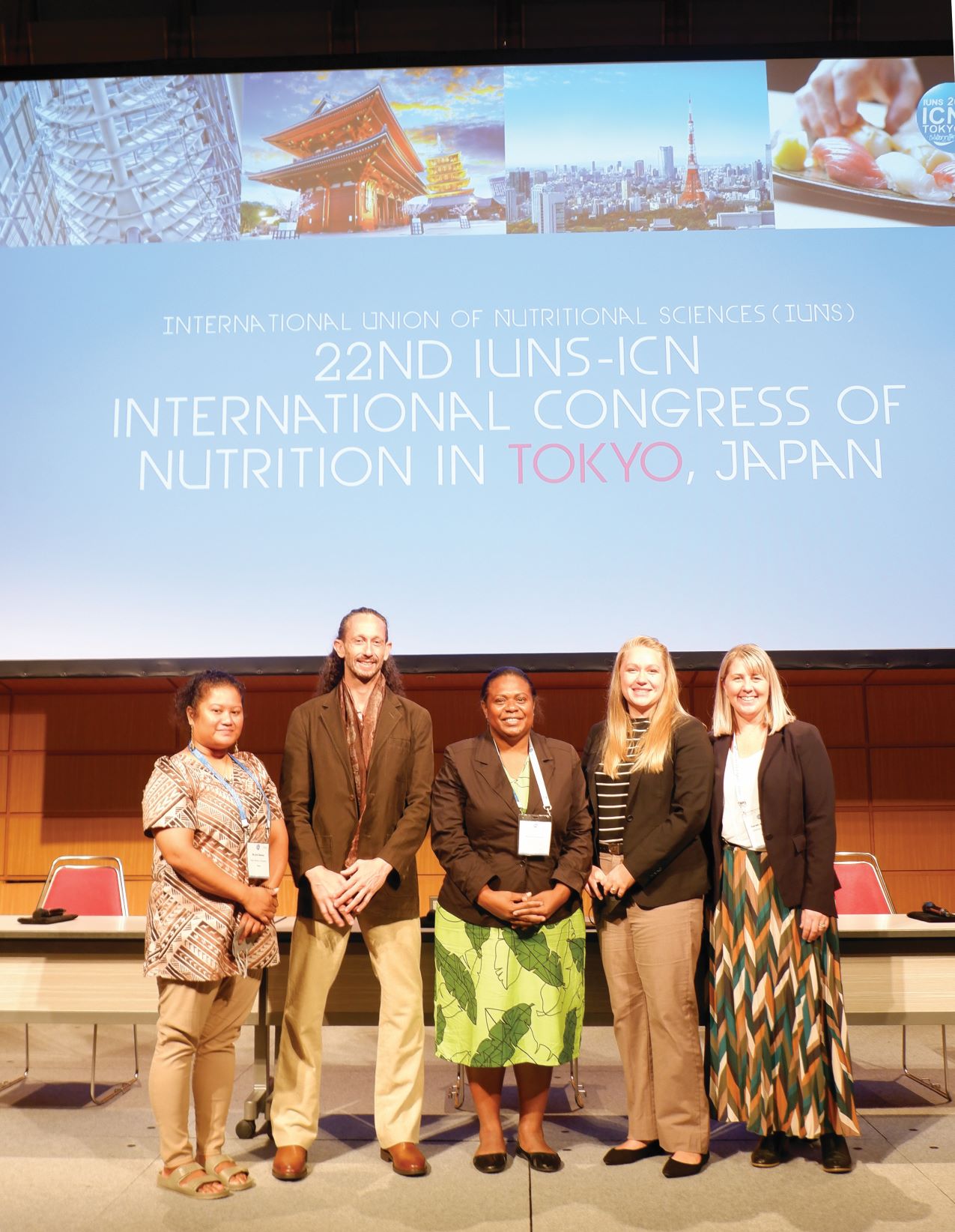Professor Neil Andrew at the University of Wollongong, Australia, is leading the ACIAR-supported agrifood system data project in partnership with the Pacific Community (SPC), CSIRO and The University of Sydney. This work is gathering information to address gaps in what is known about diets across the region, and how the food trade and food systems are evolving.
‘Food systems are defined as all those activities that transition food from either the soil or the ocean to the plate, and the outcomes in terms of food security and public health,’ said Professor Andrew. ‘And the food systems across much of the Pacific are in transition.’
He points to a decline in consumption of locally produced fish, fruit and vegetables, with increases in imported animal proteins such as beef and chicken, and processed foods. Increased urbanisation, migration and the globalised food trade are also driving these dietary changes.
Within the span of a generation, Pacific island countries and territories are reporting some of the world’s highest rates of obesity, heart disease and other non-communicable diseases.
‘Many Pacific communities are greatly affected by the coexistence of undernutrition, nutrient deficiencies and obesity,’ said Professor Andrew. ‘And food systems thinking is essential to address these food and nutrition security challenges.’
Professor Andrew said by understanding how food is acquired and consumed, national, provincial and local agencies can identify changes to local policies and actions to influence how people make their food choices.
This foundational project will wind up this year and has already produced a range of publicly available reports, housed on the SPC website. These include food consumption reports based on national household income and expenditure surveys, as well as food system briefs, and access to the Pacific Food Trade Database, which has been developed as part of the project.






